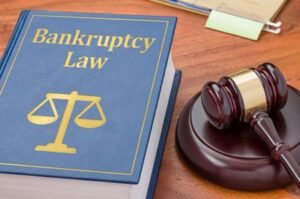Bankruptcy
Get a Free Savings Quote* & Consultation
Are you threatened with garnishment, foreclosure, or repossession? If so, you may want to consider bankruptcy to deal with these problems.
 Bankruptcy
Bankruptcy
Do you have problems paying your debts? Are you threatened with garnishment, foreclosure, or repossession? If so, you may want to consider bankruptcy to deal with these problems.
You have the right under federal law to file for bankruptcy relief from your creditors. Bankruptcy is a legal proceeding in which a person can get a fresh financial start. In certain cases, Bankruptcy can be very useful and effective in resolving financial problems. However, it is not the answer to all financial problems or the right step for everyone. Also, it can be very important to choose the right time to file for Bankruptcy Relief.
For instance, in general, you should always wait as long as possible before filing bankruptcy because you can do so only once every six years. In most cases, you will want to save this valuable option until you really need it. Also, you may not need to file bankruptcy even though creditors are threatening you because you may have no nonexempt property or wages. This means you have nothing the creditors can take from you. You can’t be put in jail for failing to pay your civil debts (other than fines or other court ordered amounts).
The only way to be sure bankruptcy is right for you is to discuss your situation with a lawyer familiar with bankruptcy. Every case is different, and laws change from time to time. This page gives you some basic information, but it does not substitute for a consultation with an attorney. The Debt Specialist Group can refer you to an attorney who specializes in bankruptcy, and they can offer a free consultation to see if this may be the right option for you.
Some things bankruptcy can do:
- Eliminate the legal obligation to pay most or all your debts. This is called a “discharge” of debts.
- Stop foreclosure of your home and allow you to catch up on missed payments.
- Stop repossession of a car or other property, or, in some situations, force the creditor to return property even after it has been repossessed.
- Stop wage garnishments.
- Stop debt collection harassment.
- Restore or prevent termination of utility service for nonpayment of previous bills.
- Get your driver’s license back if it has been suspended because you didn’t pay court-ordered damages for a driving accident (unless you were driving under the influence of drugs or alcohol
Some things bankruptcy can’t do:
- Eliminate certain rights of secured creditors. Some examples of secured debts are car loans and home mortgages. You can force secured creditors to take payments over time, but generally, you cannot keep the collateral unless you continue to pay the debt.
- Discharge debts that arise after the bankruptcy has been filed.
- Discharge certain types of debts, such as child support, alimony (spousal maintenance), certain other debts related to divorce, most student loans, court restitution orders, criminal fines, and most taxes.
- Eliminate the obligation of a co-signer on your loan in most cases.
